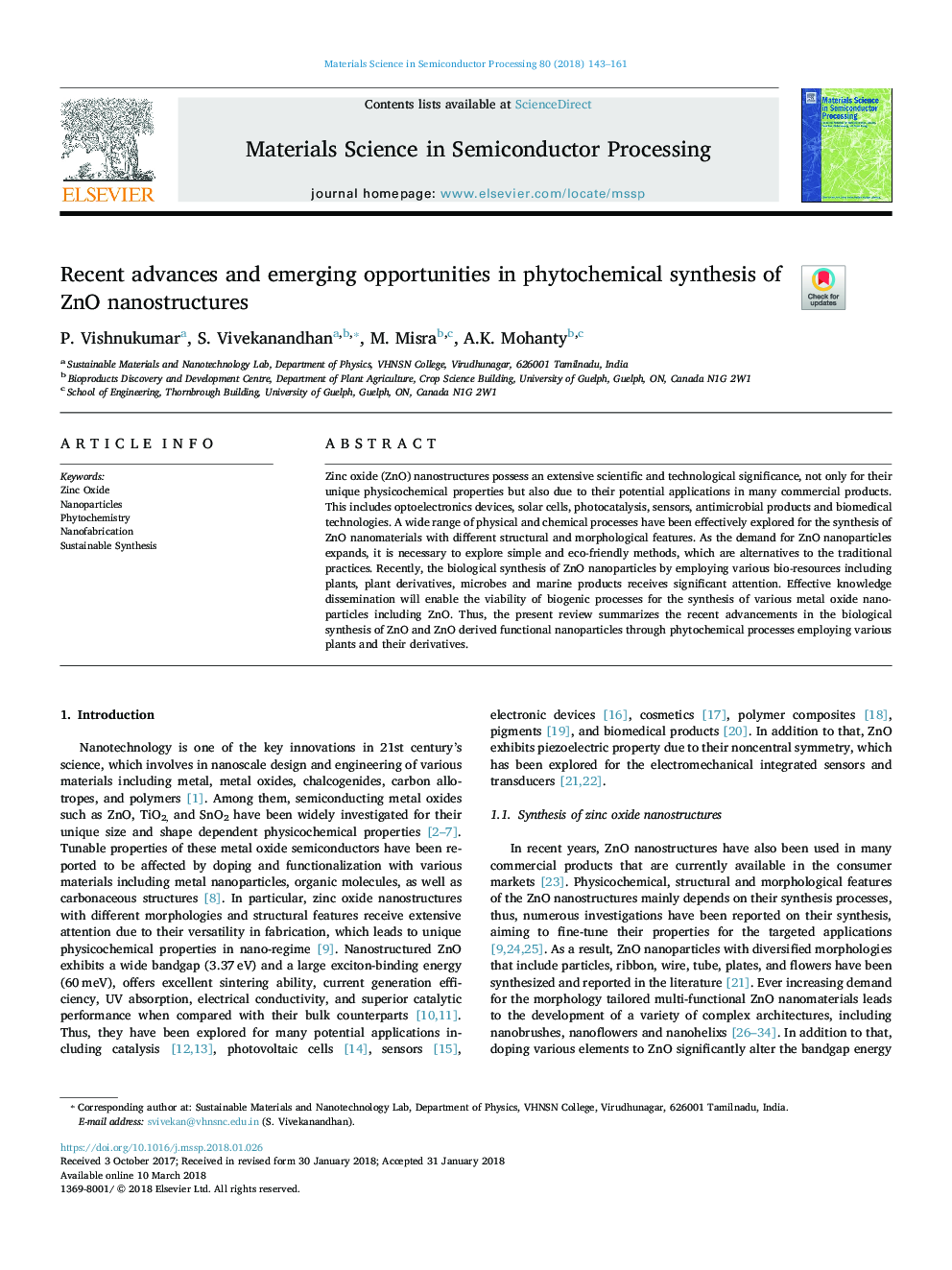| Article ID | Journal | Published Year | Pages | File Type |
|---|---|---|---|---|
| 7117729 | Materials Science in Semiconductor Processing | 2018 | 19 Pages |
Abstract
Zinc oxide (ZnO) nanostructures possess an extensive scientific and technological significance, not only for their unique physicochemical properties but also due to their potential applications in many commercial products. This includes optoelectronics devices, solar cells, photocatalysis, sensors, antimicrobial products and biomedical technologies. A wide range of physical and chemical processes have been effectively explored for the synthesis of ZnO nanomaterials with different structural and morphological features. As the demand for ZnO nanoparticles expands, it is necessary to explore simple and eco-friendly methods, which are alternatives to the traditional practices. Recently, the biological synthesis of ZnO nanoparticles by employing various bio-resources including plants, plant derivatives, microbes and marine products receives significant attention. Effective knowledge dissemination will enable the viability of biogenic processes for the synthesis of various metal oxide nanoparticles including ZnO. Thus, the present review summarizes the recent advancements in the biological synthesis of ZnO and ZnO derived functional nanoparticles through phytochemical processes employing various plants and their derivatives.
Related Topics
Physical Sciences and Engineering
Engineering
Electrical and Electronic Engineering
Authors
P. Vishnukumar, S. Vivekanandhan, M. Misra, A.K. Mohanty,
